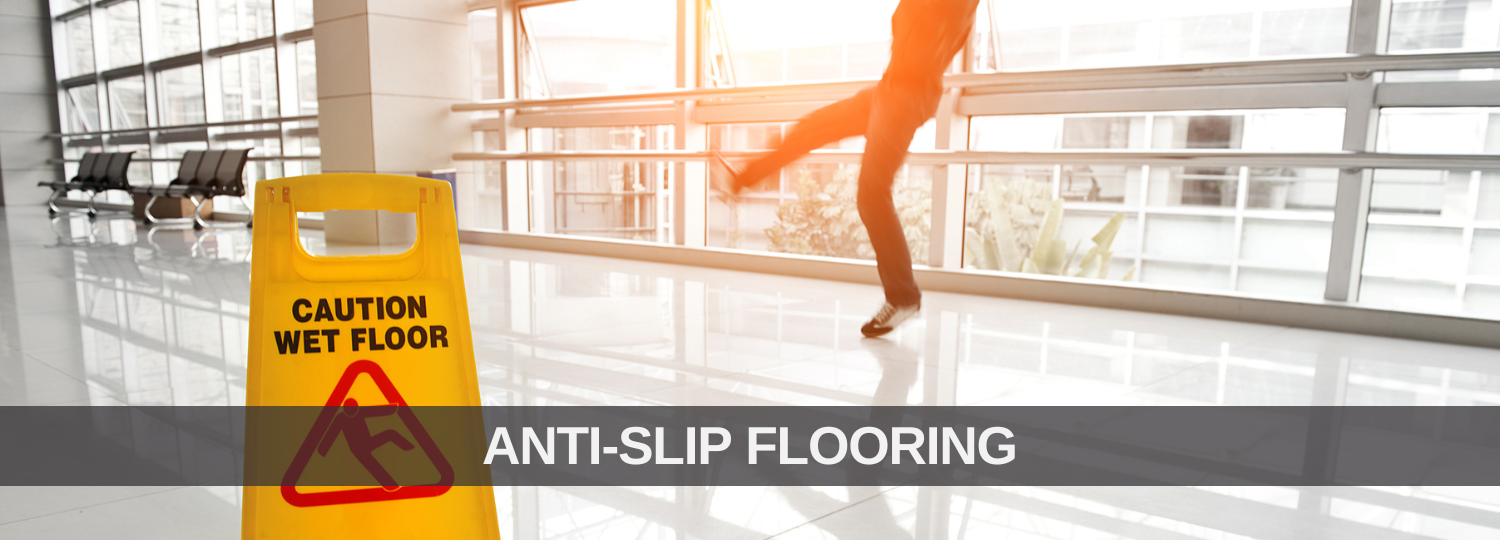Australia Wide Shipping
Australia Wide Shipping

The Building Code of Australia (BCA) has introduced Deemed to Satisfy (DtS) provisions for determining the slip-resistance to treads and nosing to stairways of all Classes of buildings and pedestrian ramps and landings of Class 2 – 9 buildings.
As of 1st of May 2014, treads or nosing to treads of a stairway must comply with a slip resistance classification as tested to Australian Standard AS 4586 – 2013 Slip resistance classification of new pedestrian surface materials. This is a new test method for slip resistance, the old ‘X’ ratings have been replaced with ‘P’ ratings.
Most floor coating paints, sealers, and epoxy products are available in the smooth format, to achieve a slip-resistant floor covering using an epoxy or polyurethane product, you will be required to mix the product into the coating product or broadcast anti-slip media over the wet film and lock it in with another coat. You can also use specialty epoxy non slip sand for flooring as anti-slip media.
Some retail spaces, most commercial and industrial sites may require an anti-slip floor covering and slip rating is measured by P or R ratings and here is a quick guide on what these numbers mean.
Examples of P2 and R9 Slip Resistant Floors
– Indoor tiles
– Shop floors
– Timber flooring
P2 and R9 floors can be cleaned and vacuumed easily and are generally recommended for the following areas
– Shops in the enclosed shopping centers
– Off-street shops where there is a possibility of customers walking in with wet shoes
– Supermarkets or where there is a possibility of liquid spillage
– Mechanical workshops
– Warehouses
– Walkways
Examples of P3 and R10 Non-Slip Floors
– Bathroom tiles
– External tiles and pavers
P3 and R10 Slip Resistance floors are a bit harder to mop and commonly used in the following areas
– Cafe/dining area floors
– Supermarkets or where there is a possibility of liquid spillage
– Mechanical workshops
– Warehouses
– Walkways
– Flat Driveways
– Patios
Examples of P4 and R11 Slip Resistant Flooring
– Hospital bathroom floor coverings
– Unsealed brick pavers
– Stenciled driveways
P4 and R11 Slip Resistance floors are much harder to mop and commonly used in the following areas
– Cafe or restaurant back of the house areas
– Loading docks
– External ramps
– Steep driveways
Examples of P5 and R12 Anti-Slip Flooring
– External shopping center ramps
– Very rough paving tiles
P5 and R12 Slip Resistance floors are almost impossible to mop and the cleaning method will be to use a water hose or pressure cleaning equipment and are commonly used in the following areas
– Industrial kitchens
– Food processing areas
– Fuel refineries
– Butcher shops
– Pool surrounds
The information listed above is to be used as a guide only and the required slip rating for your project should be discussed with the local council or private certifiers.
Showing 1–8 of 15 results